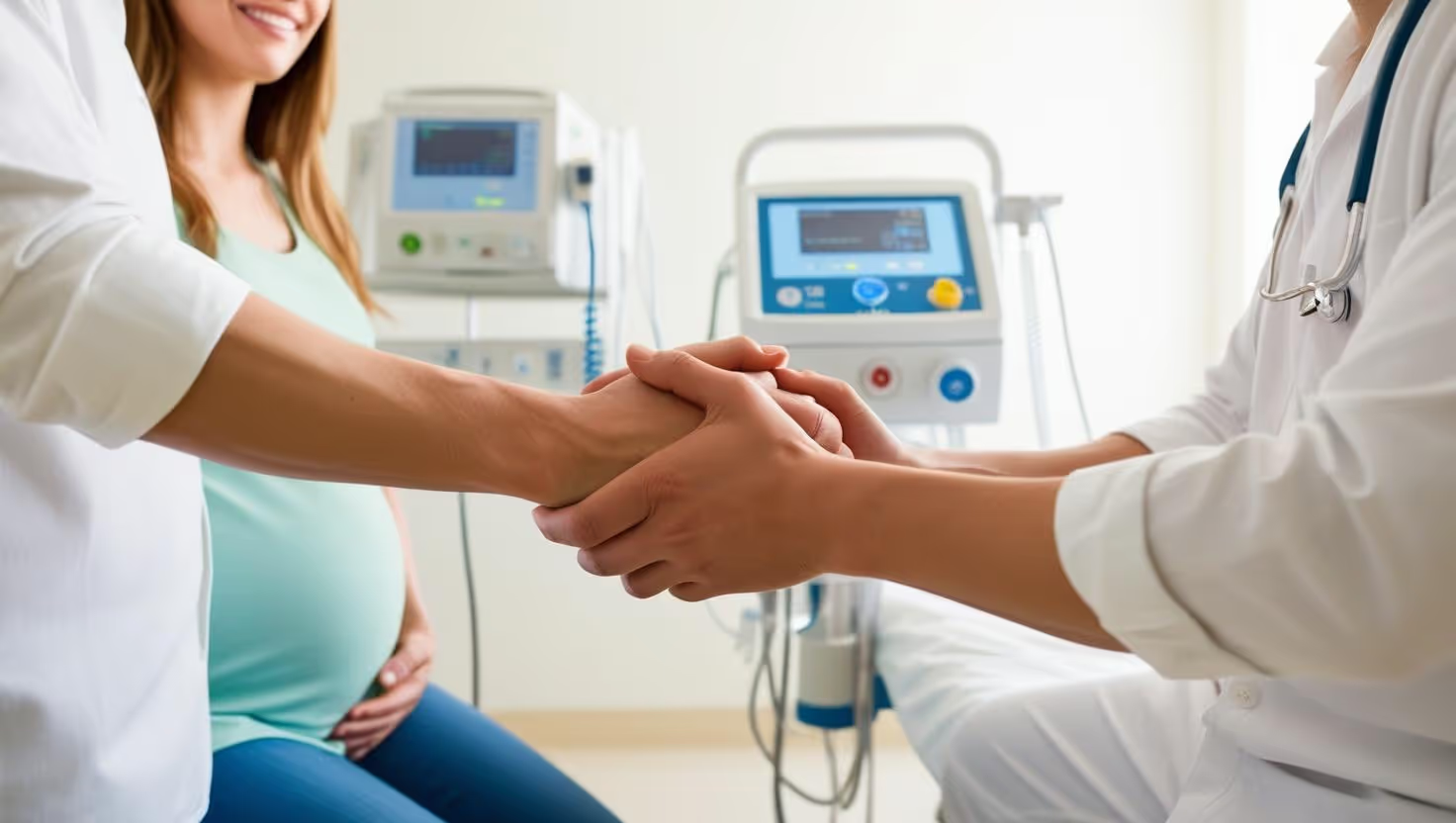
Egg Freezing (Oocyte Cryopreservation) is a method used to preserve a woman's fertility by extracting and freezing her eggs for future use.
Preparation: Before the procedure, patients may need to attend a pre-assessment appointment to evaluate their general health and discuss any medications they are taking. It's important to follow specific instructions regarding fasting before the surgery and to arrange for transportation home, as driving immediately after the procedure is not advisable.
Procedure: Performed under general or local anaesthesia, the doctor inserts a needle through the vaginal wall into the ovaries to collect mature eggs. The procedure typically lasts between 15 to 20 minutes.
Recovery: Post-procedure, patients may experience mild cramping, bloating, or spotting. It's advisable to rest for 1 to 2 days and avoid vigorous exercise. Full recovery varies per individual but generally occurs within a week.

In Vitro Fertilization (IVF) is a process in which an egg and sperm are combined outside the body to help with conception.
Preparation: Before IVF, patients attend a pre-assessment to check their health and discuss medications. Patients follow instructions for ovarian stimulation medications and should arrange transportation home, as some procedures may require sedation.
Procedure: IVF begins with ovarian stimulation, where hormones are given to produce multiple eggs. Monitoring through ultrasound and blood tests ensures the right response. Eggs are collected using a needle under ultrasound guidance. The eggs are then fertilized with sperm in the lab, and embryos are cultured for up to 6 days. The best embryo is selected and transferred into the uterus with a catheter. No sedation is needed for the transfer.
Recovery: After the procedure, mild discomfort may occur, which can be managed with pain relief. It's essential to follow post-procedure care, including activity restrictions. Recovery usually takes a few days to a week, with adherence to medical instructions important for the best outcome.

Intracytoplasmic Sperm Injection (ICSI) is a specialized form of in vitro fertilization (IVF) where a single sperm cell is directly injected into an egg to facilitate fertilization.
Preparation: Before the procedure, patients may need to attend a pre-assessment appointment to evaluate their general health and discuss any medications they are taking. It's important to follow specific instructions regarding fasting before the surgery and to arrange for transportation home, as driving immediately after the procedure is not advisable.
Procedure: Performed under general or local anaesthesia, the embryologist selects a single sperm and injects it directly into the egg's cytoplasm using a fine needle. This method is particularly beneficial when there are male fertility issues such as low sperm count, poor motility, or abnormal morphology. The procedure typically lasts between 30 minutes to 2 hours, depending on the complexity.
Recovery: Post-procedure, patients may experience some discomfort, which can be managed with prescribed painkillers. It's essential to follow the clinic's guidelines regarding activity levels and any other post-procedure care. Full recovery varies per individual but generally ranges from a few days to a week, during which adherence to medical advice is crucial for optimal outcomes.

Intrauterine Insemination (IUI) is a fertility treatment that involves placing sperm directly into a woman's uterus around the time of ovulation to increase the chances of pregnancy.
Preparation: Before the procedure, patients may need to attend a pre-assessment appointment to evaluate their general health and discuss any medications they are taking. It's important to follow specific instructions regarding fasting before the surgery and to arrange for transportation home, as driving immediately after the procedure is not advisable.
Procedure: Performed under general or local anaesthesia, the doctor inserts a speculum into the vagina to visualize the cervix. A thin, flexible catheter is then used to place a prepared sperm sample directly into the uterus. The procedure typically takes just a few minutes and is relatively painless.
Recovery: Post-procedure, patients may experience mild cramping or spotting, which can be managed with prescribed painkillers if necessary. It's essential to follow any specific post-procedure care instructions provided by the fertility clinic. Full recovery varies per individual but generally occurs within a few days.

Sperm Freezing (Cryopreservation) is a process used to preserve male fertility by storing sperm at extremely low temperatures for future use.
Preparation: Before the procedure, patients may need to attend a pre-assessment appointment to evaluate their general health and discuss any medications they are taking. It's important to follow specific instructions regarding sample collection, such as abstaining from ejaculation for 2–7 days prior to providing the sample. Arranging for transportation home is advisable, as driving immediately after the procedure may not be suitable.
Procedure: The patient provides a semen sample, typically through masturbation, in a private room at the clinic. The sample is then analyzed for sperm quality. A cryoprotectant is added to protect the sperm during freezing, and the sample is stored in liquid nitrogen at -196°C.
Recovery: There is no recovery time required for sperm freezing, as it is a non-invasive procedure. Patients can resume normal activities immediately.